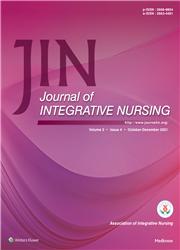Telehealth utilization among Egyptian population and health institutional readiness: An exploratory study
Q4 Nursing
引用次数: 0
Abstract
Objective: This study aimed to assess the public’s perspectives and the health institutions’ readiness for telehealth utilization in Egypt. Methods: A cross-sectional study design was employed, and data were collected from a convenient sample of 800 Egyptian citizens and 26 nursing administrators and information technology personnel from 16 governmental hospitals and 10 private hospitals between January and March 2022. The Egyptian community utilization of telehealth questionnaire and the telemedicine hospital readiness assessment were used to collect the data. Results: The results revealed that 35.1% of the general Egyptian population used telehealth services and 43% expressed willingness to use them in future. As perceived by the general Egyptian population, the most prevalent barriers to telehealth utilization were communication barriers (97.6%), lack of confidence in health professionals (77.6%), technological limitations (72.5%), the need for physical examination (25%), and privacy concerns (10%). Regarding hospital readiness, 42% of governmental hospitals were not taking any initiative to implement telehealth services, and 15.4% were at the beginner level, meaning that some steps had been taken. However, the hospital was still far from being able to implement telehealth services. In contrast, private hospitals were either at the beginner or advanced level. Conclusion: Although the use of telehealth services in Egypt has increased, there is a need to address the barriers to public utilization and improve hospitals’ readiness to implement telehealth services to enhance public usage.埃及人口中的远程医疗利用和卫生机构准备:一项探索性研究
目的:本研究旨在评估埃及公众的观点和卫生机构对远程医疗利用的准备情况。方法:采用横断面研究设计,在2022年1月至3月期间,从16家政府医院和10家私立医院的800名埃及公民和26名护理管理人员和信息技术人员中收集数据。使用埃及社区远程医疗利用问卷和远程医疗医院准备评估来收集数据。结果:结果显示35.1%的埃及普通人口使用远程医疗服务,43%的人表示愿意在未来使用它们。埃及普通民众认为,利用远程医疗最普遍的障碍是沟通障碍(97.6%)、对卫生专业人员缺乏信心(77.6%)、技术限制(72.5%)、需要体检(25%)和隐私问题(10%)。关于医院准备情况,42%的政府医院没有采取任何主动行动来实施远程保健服务,15.4%的医院处于初级阶段,这意味着已经采取了一些步骤。然而,该医院还远远不能实施远程保健服务。相比之下,私立医院要么处于初级水平,要么处于高级水平。结论:尽管埃及对远程保健服务的使用有所增加,但仍有必要解决公众利用的障碍,并改善医院实施远程保健服务的准备情况,以提高公众的使用率。
本文章由计算机程序翻译,如有差异,请以英文原文为准。
求助全文
约1分钟内获得全文
求助全文
来源期刊

Journal of Integrative Nursing
Nursing-General Nursing
CiteScore
0.40
自引率
0.00%
发文量
3
审稿时长
17 weeks
 求助内容:
求助内容: 应助结果提醒方式:
应助结果提醒方式:


